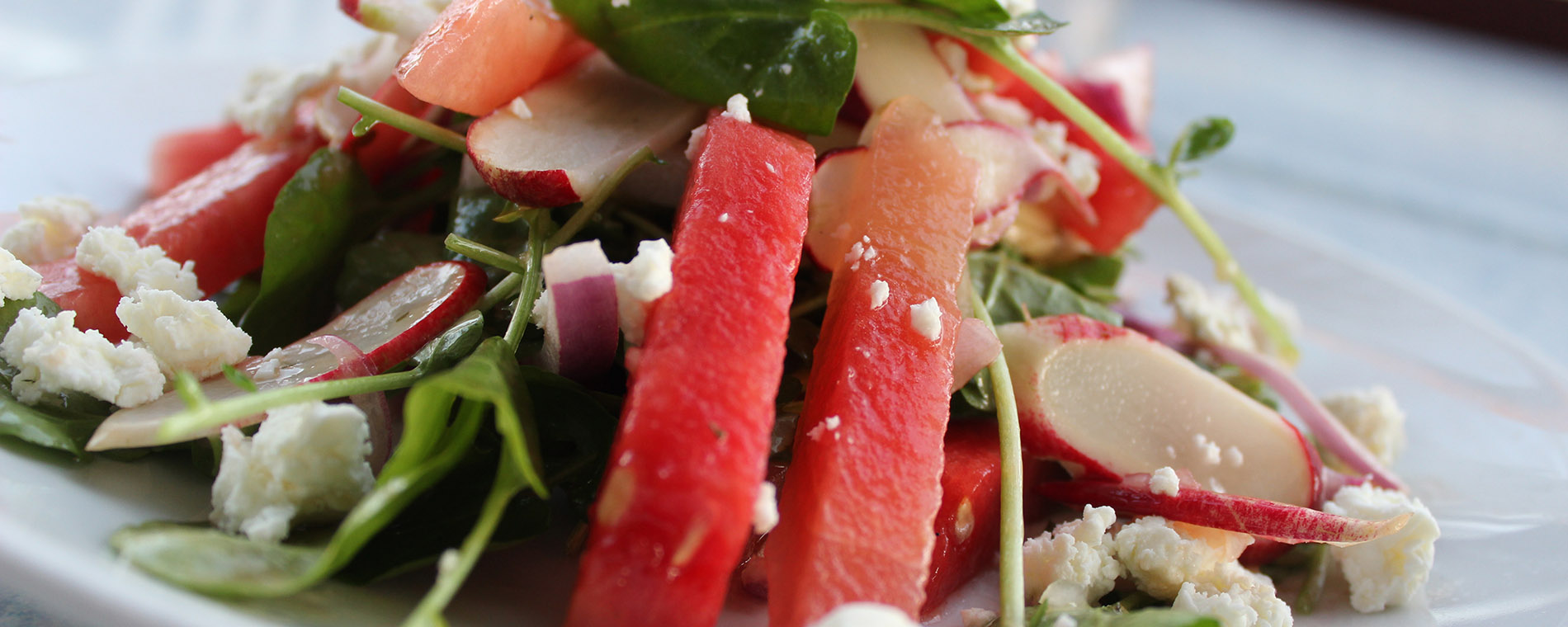Mediterranean Diet
Friday, June 23, 2023
The Mediterranean diet is a way of eating rather than a formal diet plan. The Mediterranean diet emphasizes eating foods like fish, fruits, vegetables, beans, whole grains, nuts, and olive oil. Meat, processed foods, and sweets are very limited. The recommended foods are rich in fiber, monounsaturated fat, and omega-3 fatty acids. Eating a Mediterranean-style diet can protect against the development of heart disease, cancer, depression, and dementia.
7 ways to incorporate the Mediterranean diet
- Eat lots of vegetables. Try and make half your plate vegetables for lunch and dinner. You can steam, roast, or stir fry them. Try stir frying spinach, peppers, and broccoli into scrambled eggs. Throw a bag or precut steamed veggies on pasta.
- Eat 3–4 servings of fruit per day. Start with day with berries on your oatmeal or in your yogurt. Have an apple or banana for a snack. Incorporate fruit for desserts instead of cookies and ice cream. Some good fruit desserts include a baked cinnamon apple, figs, dates, or grapes.
- Use whole grains instead of refined. Whole grains are rich in fiber and nutrients. Try tradition- al Mediterranean grains like bulgur, farro, and barley.
- Include one or two vegetarian meals per week. Build meals around beans, whole grains, and vegetables. Try lentil soup with a slice of whole grain bread and salad or quinoa mixed with vegetables and black beans.
- Think of meat as a side dish, rather than the main event at a meal. Try and stick to a 3 ounce serving (the size of a deck of cards) and choose lean cuts such as sirloin.
- Eat seafood twice a week. Choose omega-3-rich fish such as wild salmon, herring, trout, and sardines.
- Use good fats. Include sources of healthy fats on a daily basis, such as extra-virgin olive oil, avocado, nuts, and seeds. Incorporate nuts and seeds in your meals either on salads or oatmeal. Have nuts for snacks.




